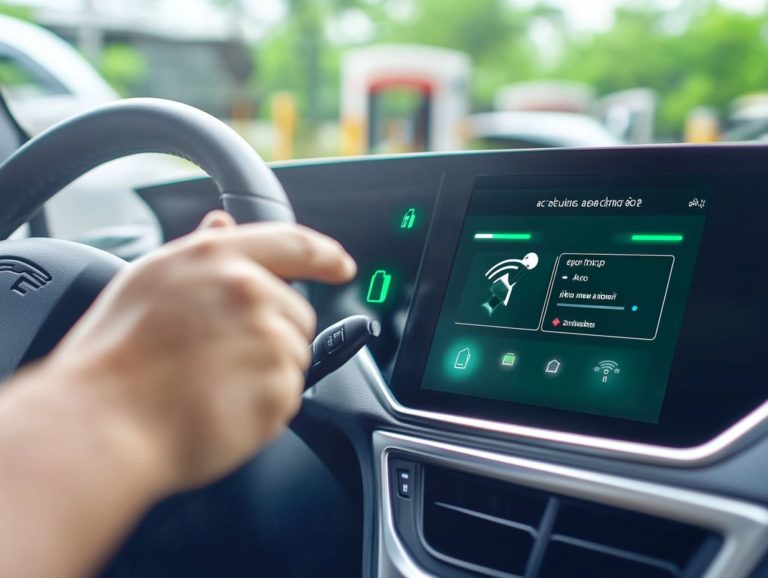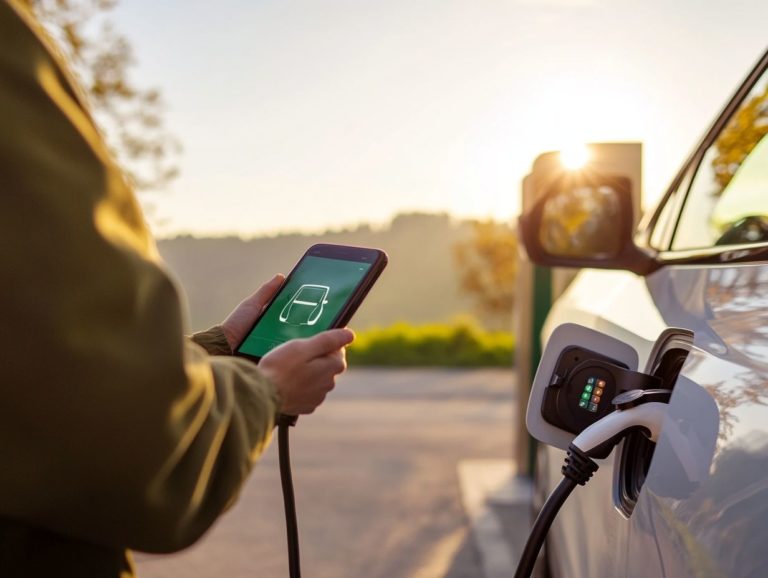how do i manage ev battery health?
Understanding EV battery health is essential for maximizing the lifespan and performance of your electric vehicle. You should consider factors such as environmental conditions and driving habits, as these significantly impact battery longevity.
This guide delves into the signs indicating poor battery health and offers effective strategies for improvement. It also addresses common myths about EV batteries, empowering you to discern fact from fiction.
Stay informed to keep your electric vehicle running smoothly and enjoy the ride for years to come!
Contents
Key Takeaways:
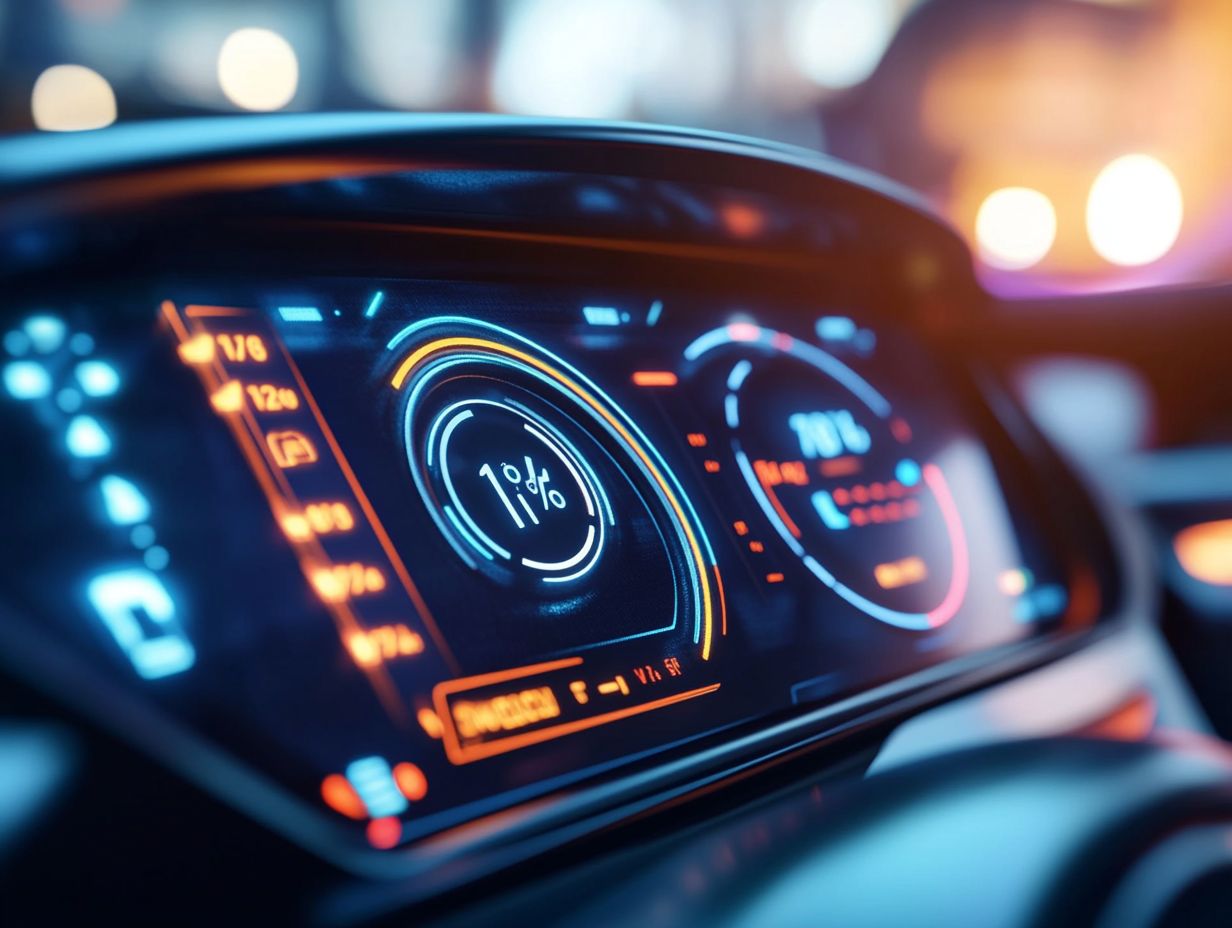
Regular maintenance and inspections are crucial for preserving EV battery health.
Proper charging techniques such as avoiding extreme temperatures and frequent fast charging can significantly improve battery lifespan.
Educate yourself about common myths regarding EV battery health and follow best practices to ensure optimal performance and longevity.
Factors Affecting EV Battery Health
Several factors play a crucial role in the health of your EV batteries. External temperatures can cause degradation, and different charging speeds can significantly impact battery performance.
Understanding your driving behavior is also important. By recognizing how these elements interact, you can optimize your battery health and extend its lifespan.
Environmental Factors
Temperature conditions are critical to your EV battery s longevity. Extreme heat can accelerate degradation, while cold weather can impair performance, especially with lithium-ion batteries.
Research shows that high temperatures beyond 95 F (35 C) can reduce lithium-ion battery lifespan by as much as 30%. Conversely, cold weather can slash an EV’s range by nearly 40% when temperatures dip below freezing.
To counter these effects, manufacturers are developing smart heating systems that keep your battery safe from extreme temperatures. You can also take proactive measures, like parking in shaded areas during summer and using heated garages in winter, to protect your EV batteries.
What is EV Battery Health Management?
EV Battery Health Management is a vital process that involves monitoring and optimizing the performance and longevity of your electric vehicle batteries. For more information on how to maintain your battery effectively, check out the best practices for EV battery maintenance, as effective management is essential to ensure your battery operates efficiently throughout its lifespan.
By implementing a robust battery management system, you can track battery health and take proactive measures to mitigate degradation. This helps ensure your battery remains within optimal operating parameters, minimizing the risk of overheating or excessive wear.
Regular battery maintenance and continuous assessment of your charging habits not only prolong battery life but also enhance overall vehicle performance. Understanding the impact of different charging speeds can significantly affect degradation rates.
Therefore, maintaining awareness of these factors is crucial, enabling you to make informed decisions that align with your driving needs and battery health.
Call to Action: Start implementing these tips today to maximize the lifespan and performance of your electric vehicle battery!
Driving Habits
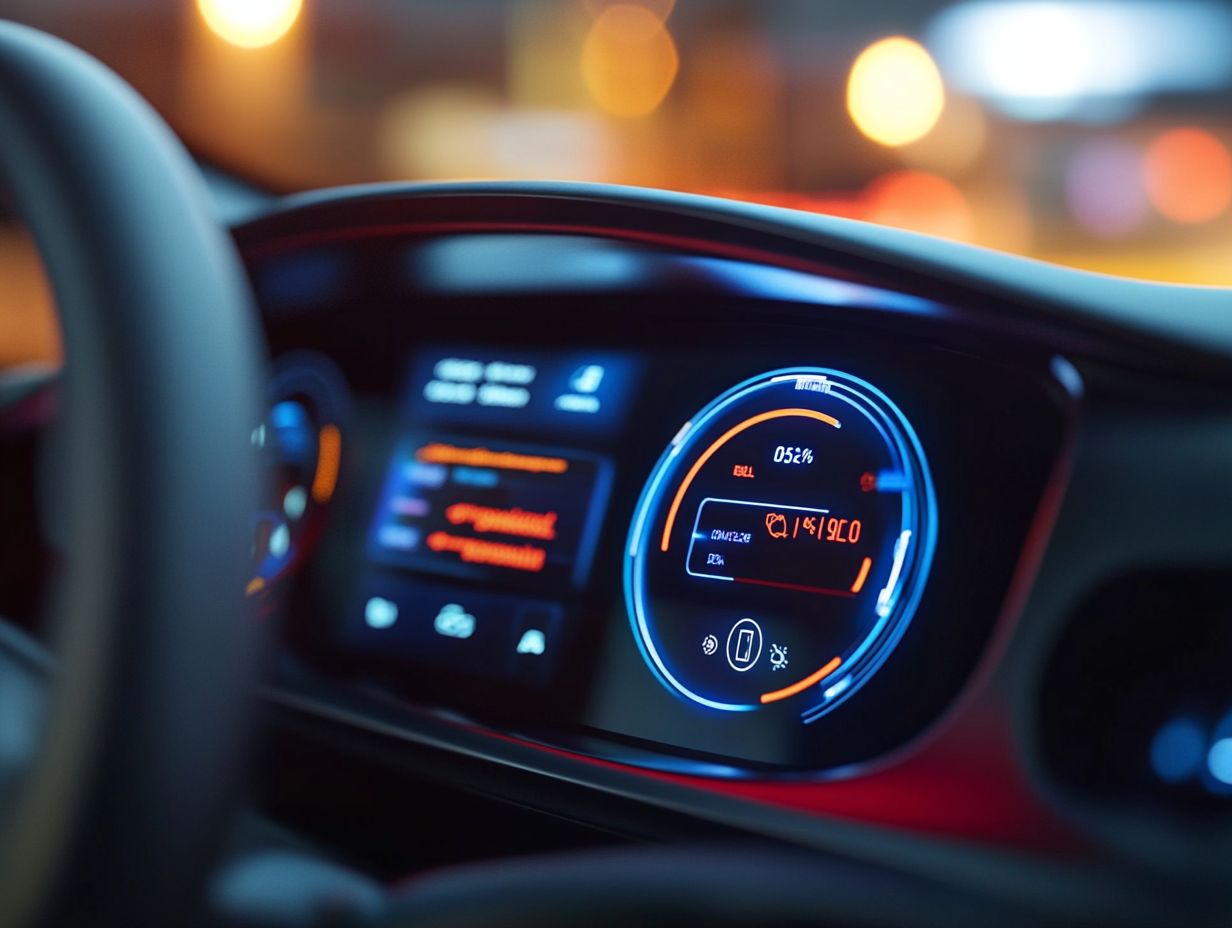
Your driving habits play a crucial role in the health of your EV battery. Behaviors such as aggressive acceleration, sudden braking, and frequent short trips can lead to increased wear and tear on the battery.
By adjusting your driving style, you can optimize battery performance and extend its lifespan. This is why a system that helps you monitor how your battery is doing is essential. These systems track important metrics like speed and braking patterns, providing valuable insights into energy consumption under various driving conditions.
For example, adopting smoother acceleration and deceleration methods can significantly reduce strain on the battery, allowing it to maintain a healthier charge cycle. Steering clear of constant short trips where the battery doesn t have a chance to fully recharge can help prevent unnecessary depletion.
You can also enhance battery longevity by incorporating techniques like regenerative braking, which captures energy during stops. Understanding the connection between driving styles and battery health will help you make informed decisions that foster a more efficient and sustainable driving experience.
Signs of Poor EV Battery Health
Recognizing the signs of declining EV battery health is crucial for maintaining optimal performance and preventing further deterioration.
Watch for signs such as a marked decrease in range, prolonged charging times, or the battery failing to hold a charge effectively. These indicators may point to underlying issues that could impact the battery s lifespan, making it imperative to address them promptly.
Identifying and Addressing Warning Signs
Identifying and addressing warning signs of poor EV battery health is essential for prolonging battery lifespan and ensuring safe operation. You might notice reduced driving range, inconsistent charging behaviors, or unusual warning lights illuminating your vehicle s dashboard.
These issues could indicate problems that may compromise your vehicle’s performance and safety. Regularly monitoring your vehicle s performance metrics is important. Utilize apps or onboard systems that provide real-time data on battery status.
If you experience a sudden decrease in driving range or notice longer charging times, these could be signals that warrant further investigation. Paying attention to these changes and consulting a professional for thorough battery inspection can help you address potential issues early.
If warning lights persist, it s advisable to consult a technician. This ensures you enjoy peace of mind and reliability on the road.
Ways to Improve and Maintain EV Battery Health
Improving and maintaining your EV battery health is crucial for maximizing performance and extending the longevity of your electric vehicle. Embrace strategies like following charging best practices, which means steering clear of complete discharges and excessive fast charging. Additionally, knowing how to inspect your EV battery health and performing regular maintenance are equally vital.
By adopting these methods, you can significantly enhance the lifespan of your EV battery, ensuring it serves you well for years to come.
Proper Charging Techniques
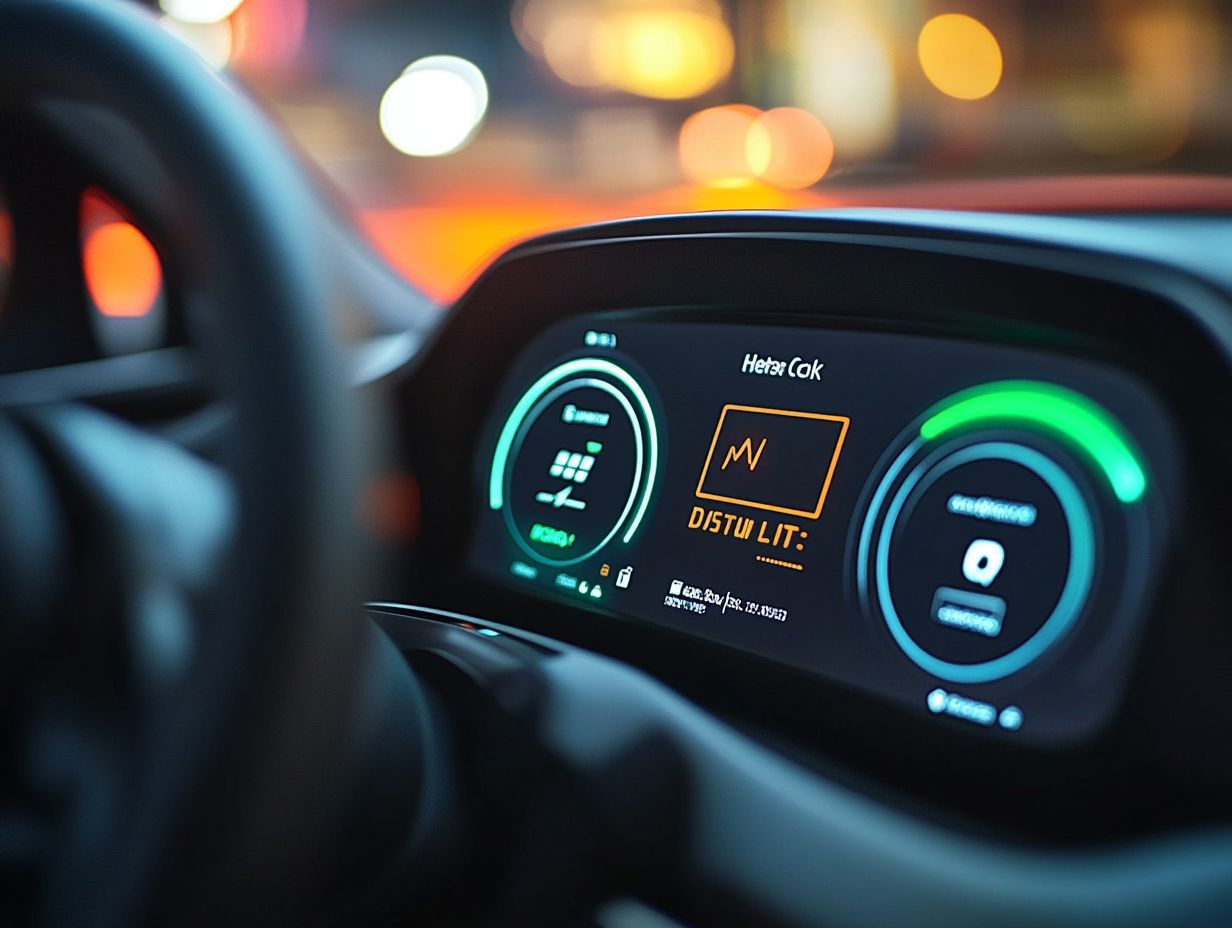
Proper charging techniques are essential for maintaining the health and longevity of your EV battery. By employing appropriate charging habits like using Level 1, Level 2, or Level 3 EV charging wisely you can significantly influence your battery’s performance.
Regularly resorting to fast charging can be tempting, but sticking to recommended best practices will help mitigate battery degradation. Each charging method carries its own pros and cons, impacting overall battery life in distinct ways.
For example, while Level 1 charging is the slowest option, it s gentler on battery cells, making it ideal for overnight charging at home. On the other hand, Level 3 charging provides rapid replenishment but can accelerate wear if relied upon too frequently.
To truly optimize your battery health, aim to charge within 20% to 80% of its capacity, taking into account your daily driving patterns. Regularly reviewing your charging frequency and avoiding leaving your battery at full charge for extended periods will further enhance its longevity.
Regular Maintenance and Inspections
Regular maintenance and inspections are crucial for keeping your battery healthy for a long time. They help you catch potential issues before they escalate.
By incorporating routine checks and using a battery management system (BMS) a tool that monitors battery health you can track performance and make necessary adjustments to extend your battery s lifespan.
During these inspections, examine the battery s physical condition. Look for signs of swelling or damage, and ensure that all connections are clean and secure.
Keep a close eye on your battery’s charge cycles and temperature for peak performance! Familiarize yourself with your BMS features; these tools not only track health metrics but also alert you to performance anomalies.
Prioritizing these maintenance activities can significantly reduce long-term repair costs and provide a more reliable driving experience in your electric vehicle.
Common Myths About EV Battery Health
You may encounter many myths and misconceptions surrounding EV battery health that cloud your understanding of battery technology.
For instance, many believe that fast charging harms battery health or that lithium-ion batteries deteriorate suddenly after a specific number of charge cycles.
Let s clear up these myths to empower you to make informed decisions about battery maintenance and longevity.
Debunking Misconceptions
Debunking misconceptions about EV battery health is essential for giving you accurate information. It’s a common belief that all charging practices lead to rapid battery degradation or that lithium-ion batteries must be fully discharged before recharging. That s simply not true!
Understanding the realities of battery management is crucial for maintaining your EV’s optimal battery health. Learning how to maintain your EV for high mileage can help dispel these misunderstandings, preventing unnecessary anxiety and poor choices regarding battery care.
For example, you might think that frequent charging is detrimental to the battery. However, modern EVs are cleverly designed to manage the charging cycle efficiently.
By educating yourself on proper charging habits like keeping the battery level between 20% and 80% you can significantly enhance its lifespan.
Distinguishing between myths and facts enables you to adopt the best practices for battery maintenance, ultimately leading to improved performance and an extended vehicle range.
Frequently Asked Questions

What is EV battery health?
EV battery health refers to the overall condition and performance of the battery in an electric vehicle. It includes factors such as capacity, charging speed, and lifespan.
How do I know the current health of my EV battery?
You can check your battery health using the battery management display in your EV. Many EVs also show the battery’s state of charge and estimated range, which is crucial for understanding how to maintain your EV for longevity.
What factors can affect the health of my EV battery?
Several factors can affect your EV battery s health, including extreme temperatures, frequent fast charging, and excessive depth of discharge. Driving habits and charging patterns also impact battery health.
How often should I charge my EV to maintain battery health?
To maintain optimal battery health, it is recommended to charge your EV regularly, ideally every day. This keeps the battery at a moderate state of charge and avoids deep discharges that can degrade it over time.
Can I overcharge my EV battery?
Modern EVs have built-in safeguards to prevent overcharging, so you cannot overcharge your EV battery. Still, it s important to monitor the battery s state of charge and avoid leaving it plugged in for long periods.
Are there any tips for prolonging my EV battery’s lifespan?
To prolong your EV battery s lifespan, avoid frequent fast charging, limit exposure to extreme temperatures, and follow regular maintenance schedules. Also, charge your EV when the battery is at a moderate state of charge rather than fully depleted.
Start implementing these tips today to maximize your EV experience!


